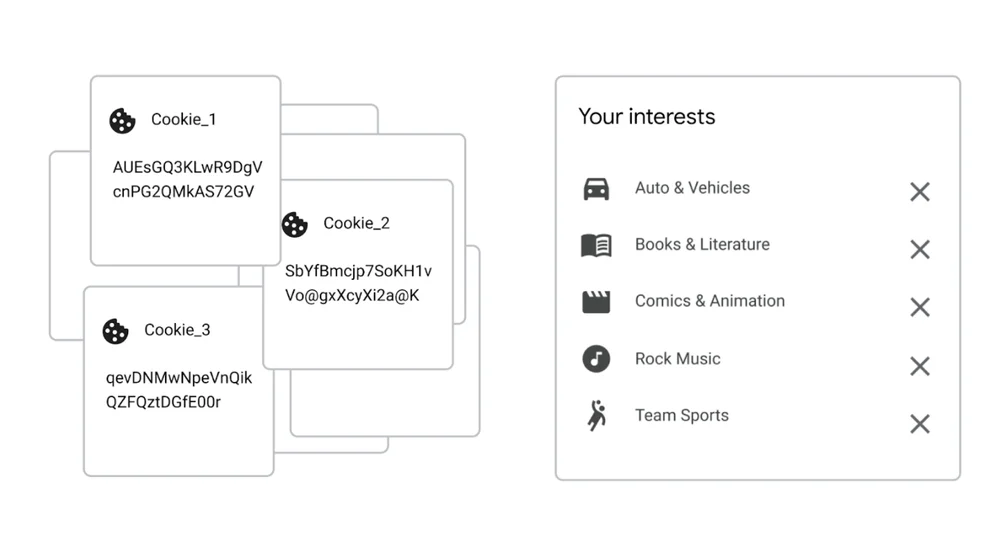Google, the tech giant, is getting closer to getting rid of third-party cookies that follow your online activities across websites. Which might sound like a good thing at first, but there’s more to it that what meets the eye. Google Chrome, the most popular browser built by Google, will now monitor your digital footprints through its new Privacy Sandbox. This means that your browser create a profile of your online activity — to show you ads. Google plans to block third-party cookies in the second half of 2024 and It will stop using cookies to track your interests. These features made their debut on Google Chrome on Pixel phones just a few weeks ago.
Google leads the Chromium project and Chrome dominates the global browser market. Therefore, it has an advantage in implementing features for the masses with little backlash. But let’s not forget – Google’s bread and butter is advertising, and surrendering targeted ads is far from their agenda.
What replaces cookies?
Privacy Sandbox APIs in Chrome will replace cookies. This concept is simple, but what is Topics API? Topics API is a feature that identifies your top interests for the week based on your browsing history. Your browser selects a few areas such as “Fitness” or “Travel“, or “Transportation” to signify your primary interests. The browser stores topics for a duration of three weeks, and then overwrites it when your interest changes.

Topics are entirely a local process devoid of any intervention from external servers, including those of Google. When you visit a participating site, Topics picks three topics from the past three weeks. The site and its advertising partners request these topics from the browser to show adverts to the users.
Google’s initial proposal for Federated Learning of Cohorts (FLoC) was not well-received because of its disclosure of excessive personal information. The Topics method is more generic, but having the browser itself on surveillance duty evokes unease. You can see what Google Chrome thinks your interests are by checking the Topics in the Ad Privacy settings menu. You can block topics you prefer to remain anonymous and the API updates old topics every lunar month.
Google has announced plans to disable third-party cookies for a select few early next year as it gauges user response to this change. If all goes smoothly, this implementation of this modification may reach all users by the latter half of 2024.
What are other browsers planning to do with Google’s Privacy Sandbox Topics API
Some browsers, such as Vivaldi, Brave and Edge, based on Chromium have raised concerns about certain aspects of the Privacy Sandbox proposals. However, only Vivaldi has announced plans to disable Topics API. Mozilla Firefox and Apple’s Safari also have made their position. But Firefox and Safari are built on different browser engines and aren’t obliged to implement Topics API and probably will not implement it citing privacy concerns.
As it stands, it seems cookies and Topics API will fight it out for a future standard for ad targeting going forward.



